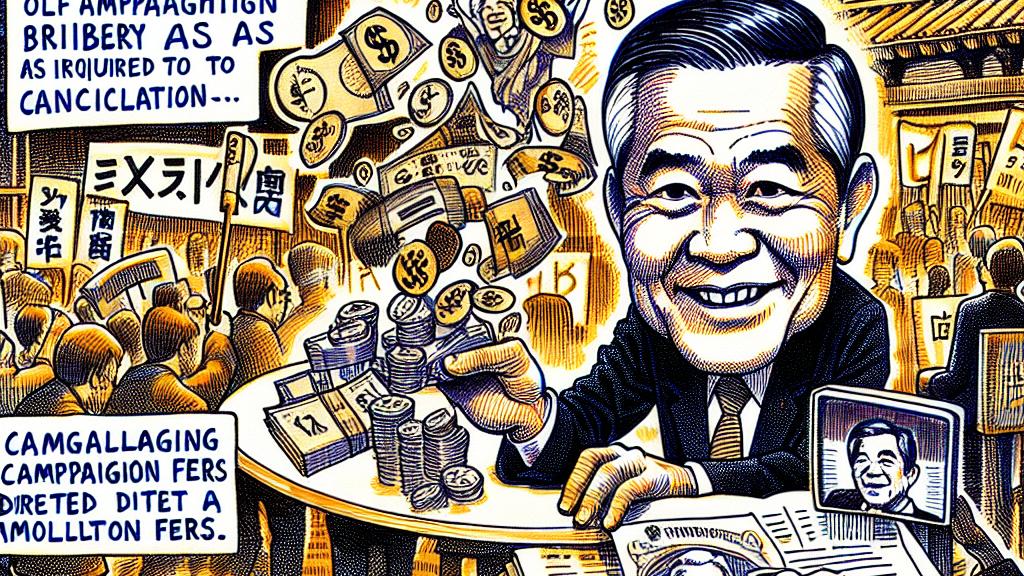Understanding the Accusations Against a Political Figure
Overview
- A comprehensive breakdown of Shinji Ishimaru's alleged election law violations and their implications.
- Detailed insights into financial misconduct accusations during his campaign.
- Exploration of his defensive strategies in press conferences and the public's reaction.

The Allegations Against Ishimaru
In the complex landscape of Japanese politics, few scandals resonate as deeply as those surrounding Shinji Ishimaru, a 42-year-old former mayor of Akita, who is now contending for the esteemed position of Tokyo governor. The heart of the controversy lies in alarming accusations of electoral bribery, with each claim threatening to upend his political aspirations. According to reports, during a vibrant rally held in July 2024, Ishimaru's campaign allegedly directed a staggering 1 million yen to a media vendor. Rather than being reported as campaign expenditures, this money was misleadingly categorized as 'cancellation fees.' This action raises serious ethical questions, exposing how easily financial misconduct can intertwine with the pursuit of political office. By framing this huge sum as something innocuous, Ishimaru's camp might have underestimated the scrutiny that accompanies public service positions.
Ishimaru's Responses
In the wake of mounting criticism, Ishimaru confronted the media during a press conference, attempting to navigate the turbulent waters of public opinion. He candidly acknowledged that there were 'irregularities' within his campaign finances—an unexpected move that caught many by surprise. He continued, declaring that the vendor in question operated as a 'volunteer.' However, this defense felt flimsy and somewhat reminiscent of the evasive tactics employed by other politicians ensnared in scandals. Critics quickly seized on his words, interpreting them as distractions rather than genuine attempts at transparency. The atmosphere grew tense as reporters pressed him for clarity, and each circular explanation only seemed to heighten public skepticism. As his defense backfired, it became evident that mere declarations would not suffice in a climate demanding accountability.
Public Reaction and Consequences
The fallout from these allegations has been nothing short of explosive. Citizens across Japan, weary of political subterfuge, have voiced their outrage, demanding greater transparency and accountability from their elected officials. Leading activists have amplified their calls for reform, emphasizing the urgent need for stricter electoral laws to safeguard against the corrosive effects of corruption. Ishimaru’s predicament resonates widely, sparking conversations about the ethical responsibilities of political candidates. As debates over governance intensify, the question remains: Can Ishimaru salvage his reputation and steer clear of the scandal’s repercussions, or will he serve as a poignant reminder of the risks embedded in political ambition? Only time will tell, but in the interim, his story is profoundly illustrative of the larger systemic challenges facing Japan’s electoral landscape.

Loading...